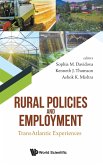Young people are a segment of the population that is generally defined by age characteristics. However, the perspective of cultural studies has largely managed to overcome this vision by considering it as a category that is culturally constructed in relation to multiple factors, where age is one of them. Defining young people from a socio-cultural perspective implies going beyond biological limits such as age and not assuming youth as a homogeneous category that responds to a single identification variable. Including chronological, family, cultural, psychosocial, institutional aspects and, above all, the logic of the construction of age differences within a given society, are indispensable requirements in the analysis of the relationship between youth and identity.
Bitte wählen Sie Ihr Anliegen aus.
Rechnungen
Retourenschein anfordern
Bestellstatus
Storno








